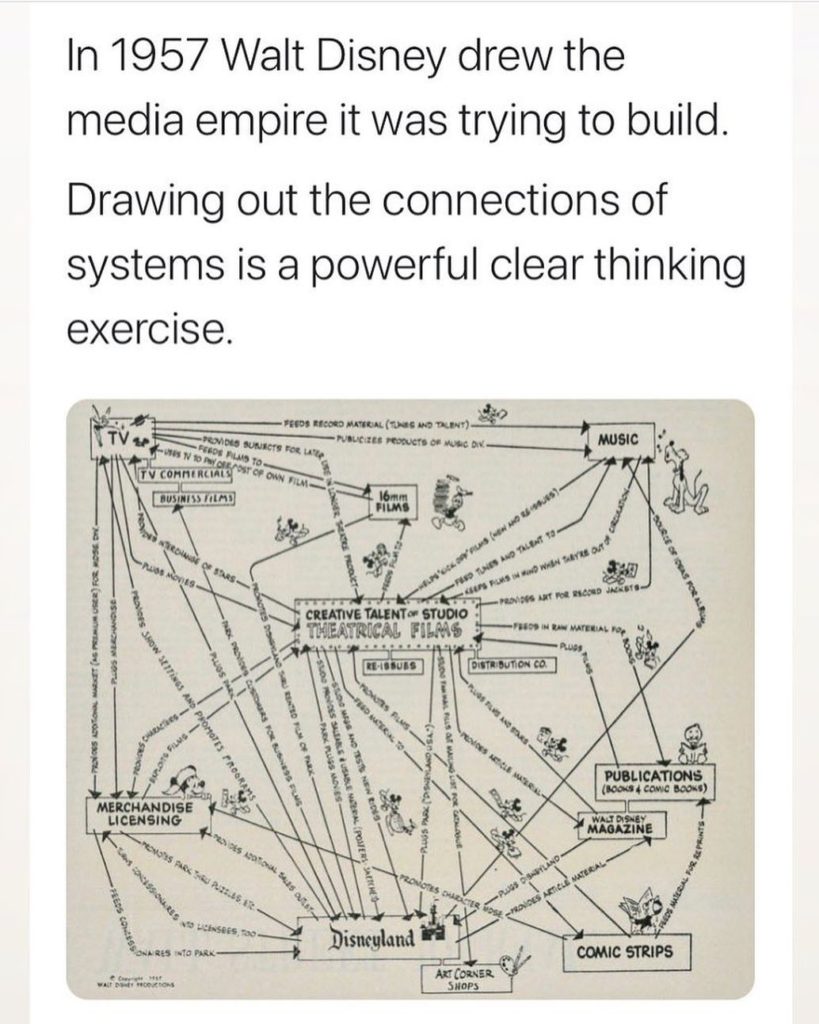As a Project Manager, you’re the quarterback of the product launch game. You juggle tasks, manage timelines, and navigate the constant chaos with grit and grace. But what if there was a way to elevate your game, to see the entire field, anticipate every play, and guide your team to an effortless touchdown? The answer lies in the playbook of a lesser-known MVP: the System Engineer.
Think beyond the silo: Unlike project managers who excel in managing individual stages, system engineers are trained in holistic thinking. They see projects as interconnected systems, understanding how seemingly disparate parts influence the big picture. This end-to-end problem-solving approach can revolutionize your project management.
If you are looking to start your PMP journey today by enrolling in Master of Project Academy’s courses:
Engineering your success: Here’s how incorporating system engineering principles can make you an indispensable project MVP:
- Define the mission: System engineers start by clearly defining the mission, the “why” behind the project. Translate this into a compelling vision for your team, a north star that guides every decision. This clarity becomes your launchpad for strategic planning and decision-making.
- Break it down, build it up: System engineers excel at decomposing complex systems into manageable parts. Apply this skill to your project, breaking down milestones into smaller, actionable tasks. This reduces complexity, empowers your team, and ensures smooth execution.
- Test, tweak, triumph: Rigorous testing is a system engineer’s mantra. Implement this in your project by incorporating test phases throughout the development cycle, not just at the end. This proactive approach identifies and eliminates glitches before they become launch-day disasters.
- Risks, like curveballs: System engineers anticipate risks and build mitigation strategies. Do the same! Identify potential roadblocks and develop contingency plans. This foresight reduces stress, builds resilience, and keeps your project on track even when the unexpected strikes.
Becoming the pilot: As you incorporate these principles, you’ll witness a transformation. You’ll be able to navigate project complexities with ease, anticipate challenges before they arise, and lead your team to successful launches with confidence. Remember, it’s not just about managing tasks; it’s about orchestrating a system – a winning system – for product success.
- You can read our article about Amazon’s ‘Fail Fast, Fail Forward’ Approach to achieve effective project management
Real-Life System Engineering Projects: Lessons for Project Managers
System engineering and project management go hand-in-hand, like peanut butter and jelly. One ensures the technical vision, the other orchestrates the journey. Understanding both is crucial for any aspiring project manager, and learning from real-life examples is the best way to solidify those lessons.
- The Sandbox Membership covers realistic case studies (similar to what is used in Business Schools) and short courses that encourage consistent and iterative learning, ensuring concepts are revisited and reinforced.
Here are three diverse system engineering projects that showcase the power of this combined approach:
- Mars Perseverance Rover: Landing a rover on Mars is a symphony of intricate systems working together seamlessly. From its heat shield protecting it during entry to its robotic arm collecting Martian rocks, every component had to be meticulously designed, tested, and integrated.
- Systems Engineering at Play: NASA employed a rigorous systems engineering methodology, defining the mission objectives, breaking down the system into subsystems, and ensuring constant communication and collaboration between engineers, scientists, and project managers.
- Project Management Prowess: The project faced numerous challenges, including budget constraints and tight deadlines. But through meticulous planning, risk management, and agile adaptation, the project team successfully delivered the rover, pushing the boundaries of space exploration.
- Hyperloop One: Imagine hurtling through a vacuum tube at supersonic speeds. That’s the promise of Hyperloop, a transportation system envisioned by Elon Musk. While still in its early stages, Hyperloop One has made significant progress thanks to a robust system engineering approach.
- Systems Engineering at Play: The company has focused on developing key subsystems like the pod, levitation system, and propulsion technology. Each subsystem is designed with the entire system in mind, ensuring compatibility and optimal performance.
- Project Management Prowess: Hyperloop One has adopted an iterative development approach, rapidly prototyping and testing different designs. This allows them to learn from failures quickly and adapt their plans, a crucial skill for any project manager.
- International Space Station (ISS): The ISS is a testament to international collaboration and systems engineering brilliance. This orbiting laboratory, assembled piece by piece in space, represents the pinnacle of human ingenuity.
- Systems Engineering at Play: The ISS required meticulous planning and coordination between multiple space agencies, each with its own technical expertise and cultural nuances. Systems engineers played a vital role in ensuring compatibility, safety, and long-term functionality of the station.
- Project Management Prowess: Managing a project of this scale demanded exceptional project management skills. The team had to deal with unforeseen challenges, budget constraints, and ever-evolving technological advancements. Their ability to adapt and overcome obstacles is a valuable lesson for any project manager.
These are just a few examples of how system engineering and project management work together to achieve remarkable feats. By learning from these real-life projects, aspiring project managers can hone their skills in:
- Holistic thinking: Seeing the big picture and how individual components interact.
- Risk management: Anticipating and mitigating potential challenges.
- Communication and collaboration: Fostering teamwork and knowledge sharing.
- Adaptability and resilience: Embracing change and overcoming obstacles.
Remember, project management is not just about ticking boxes and meeting deadlines. It’s about understanding the intricate puzzle of your project, guiding your team with a clear vision, and adapting to the inevitable curveballs. By incorporating the lessons of system engineering, you can become the project manager who not only delivers success but also inspires awe.
Here is another example of a “system engineering project” in simple form by Walt Disney:

We believe Walt Disney’s “system engineering project” is the result of many iterations of mind mapping.
System engineers and project managers both play crucial roles in the successful delivery of projects, but they do so in different ways. Their abilities to drop into any project or product team and make an immediate impact are rooted in their unique skill sets, approaches, and methodologies. Below, we detail how each can parachute into any environment and make a significant contribution. Lastly, we design a new hybrid role, the “System Project Manager,” and what it might look like.
System Engineers: Making an Immediate Impact
System engineers apply a holistic and interdisciplinary approach to manage the lifecycle of complex systems, from conceptual design through operation and eventual disposal. Here’s how they can make an immediate impact:
- Holistic Understanding: System engineers view the project in its entirety, understanding how various components interact within the system and with external elements. This broad perspective enables them to identify and address potential issues that may not be apparent at the component level.
- Requirement Analysis and Management: They excel in defining, documenting, and ensuring that all stakeholder requirements are met. By establishing clear requirements at the outset, they prevent scope creep and ensure that the project delivers the intended value.
- Risk Management: System engineers are adept at identifying potential risks in the design and implementation phases. Their proactive approach to risk management helps in mitigating challenges before they become critical issues, ensuring smoother project progression.
- Integration and Testing: Their expertise in integrating diverse components into a cohesive system and conducting thorough testing ensures that the system functions as intended, meeting all performance criteria.
- Optimization: System engineers strive for efficiency and effectiveness in all aspects of the project, from resource allocation to process improvement, ensuring optimal project outcomes.
Project Managers: Making an Immediate Impact
Project managers bring structure and direction to projects, ensuring they are completed on time, within budget, and to the required quality standards. Here’s how they can make an immediate impact:
- Project Planning and Organization: Through meticulous planning and organization, project managers establish clear project objectives, timelines, and resource allocations, setting the foundation for successful project execution.
- Communication and Team Leadership: They excel in communication, acting as the central point for all project-related information. Their leadership skills ensure that the project team is motivated, informed, and working collaboratively towards common goals.
- Budget and Schedule Management: Project managers closely monitor project progress and resource usage, making adjustments as necessary to keep the project on track financially and temporally.
- Stakeholder Engagement: They manage stakeholder expectations through regular updates and feedback loops, ensuring that the project remains aligned with business objectives and stakeholder needs.
- Quality Control: By enforcing quality standards and conducting regular reviews, project managers ensure that the project outputs meet the required specifications and stakeholder expectations.
The System Project Manager: A Hybrid Role
A “System Project Manager” would embody the strengths and approaches of both system engineers and project managers. This hybrid role would be particularly effective in environments where the complexity of the project requires a deep understanding of both the technical and managerial aspects. Key characteristics and capabilities might include:
- Integrated Approach to Project and System Management: Combining the holistic system perspective with rigorous project management practices to ensure that complex projects are delivered efficiently and effectively.
- Enhanced Stakeholder Engagement: Leveraging technical and managerial expertise to communicate complex concepts clearly and manage expectations effectively.
- Adaptive and Proactive Leadership: Capable of leading by example, adapting to changing project needs, and proactively addressing potential issues before they impact the project.
- Strategic Risk and Opportunity Management: Identifying and exploiting opportunities for improvement while mitigating risks through an integrated approach.
- Continuous Improvement and Innovation: Driving innovation in project execution and system design through a relentless focus on optimization and excellence.
In essence, the system project manager is a rare breed – a technical whiz with the organizational prowess of a project management guru. They are the bridge between the technical and non-technical aspects of a project, ensuring its smooth and successful completion.

